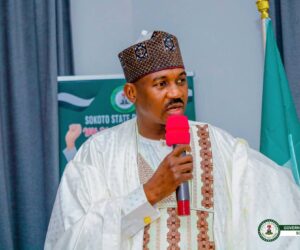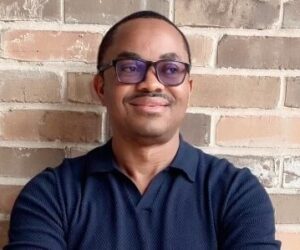
Those who truly care about Nigerians and about Christians in Nigeria should support the citizens demanding a state that can investigate, prevent and prosecute. They should demand budgets, oversight, and reforms, not bombs. The stakes are too human, and our history too loud, to fall for “guns-a-blazing” one more time.
When Donald Trump declared that the United States may “very well go into that now disgraced country, ‘guns-a-blazing,’ to completely wipe out the Islamic Terrorists who are committing these horrible atrocities,” he was not making a rhetorical flourish. He was threatening the invasion of a sovereign nation: Nigeria. He ordered the United States’ “Department of War” to prepare for possible action, and threatened to cut all US aid if Nigeria does not halt attacks on Christians.
That this has become a topic of giddy online commentary is deeply alarming. Tweets and memes cheering the prospect of barging into Nigeria “guns-a-blazing” are not harmless. It is intoxicating rhetoric, yes, but it is also a well-worn script and we know how it ends. When powerful states peddle force as a shortcut to justice, to stop terrorism, protect civilians, or topple a villain, history shows they rarely stay to repair what war shreds. The record is a no-grey area.
In 2003, the US-UK invasion of Iraq was sold as a pre-emptive action. The official UK inquiry (the Chilcot Inquiry) concluded that the decision to invade was taken before peaceful options were exhausted, based on flawed intelligence presented with unwarranted certainty. Post-war planning was “wholly inadequate.” Nearly two decades later, Iraq is still rebuilding amid regular violence and deep political fragmentation.
In 2011, the NATO-backed intervention in Libya was framed as a protection mandate but it morphed into regime change, tearing apart the state. The aftermath: militias, rival governments, mass abuses and human trafficking camps. That is not “liberation”; it is lawlessness with victims in the tens of thousands.
From 2001–2021, the 20-year war in Afghanistan, followed by the withdrawal and swift return of the Taliban, showed how the language of rights and liberation can crumble. Today, Afghan women and girls face near-total erasure from public life. The slogan of “we came to secure rights” lies in ruins.
You can also add brief operations such as those in Panama in 1989 and Grenada in 1983: both were regarded as military “successes” in narrow terms, yet even there civilian deaths, contested legal justifications, and long shadows, complicate any triumphalism. War is never neat; the bill is often borne by civilians who never asked for it.
Nigerians, both at home and in the diaspora, should never romanticise or applaud foreign military intervention. We must stand together and reject such threats unequivocally.
First: it would kill people – ordinary Nigerians, not the fantasised “bad guys”. Nigeria’s cities are dense; the conflict flashpoints are interwoven with farms, schools, markets and places of worship. Air strikes and raids do not discriminate in the way that press conferences do. A foreign military hammer would be blunt and deadly.
Nigeria’s crisis includes anti-Christian violence and demands credible Nigerian action, not foreign invasion. To be clear: violence against Christians in Nigeria is not a mere talking point for justifying foreign intervention. It is a national emergency that requires credible Nigerian institutional response.
Second: it would fracture the federation. Nigeria’s security crisis is real but it is also hyper-local and complex: North-East from jihadist insurgency; North-West from banditry; North-Central from farmer-herder conflicts; South-South from criminality and resource politics. A foreign hammer would flatten nuance, blur distinctions and almost certainly feed recruitment for armed groups, while poisoning inter-communal trust.
Third: it would hurt Nigerians everywhere. The threats of invasion legitimise prejudice against Nigerians abroad; they embolden vigilante rhetoric in diaspora communities; and they spook investors already jittery about a currency collapse, inflation, and power supply failures. Those cheering, “bring in the Marines,” won’t be the ones wiring school fees or paying for inflation-hit food; yet they unleash the bill.
Finally: it shreds the law we all rely on. The United Nations Charter’s prohibition of threat or the use of force is not academic; it’s the thin dam holding back a world in which might makes right. Once we normalise a powerful country violating another’s sovereignty because we dislike its government, we invite the same logic against ours.
Nigeria’s crisis includes anti-Christian violence and demands credible Nigerian action, not foreign invasion. To be clear: violence against Christians in Nigeria is not a mere talking point for justifying foreign intervention. It is a national emergency that requires credible Nigerian institutional response.
Facts, Not Slogans
• On Christmas Eve 2023, coordinated attacks in Plateau State left at least 140 people dead across multiple villages — part of a broader pattern in the North-Central farmer-herder conflict’;
• On 5 June 2022, gunmen massacred worshippers at St. Francis Catholic Church, Owo in Ondo State, killing dozens during Mass. Several suspects were later charged under Nigeria’s terrorism laws;
• The US Commission on International Religious Freedom has repeatedly documented attacks on churches and faith-based organisations and cited Nigeria’s uneven protection and accountability responses — while noting that multiple communities (Christian and Muslim) are targeted by different armed actors;
• The European Parliament condemned the Plateau killings and urged Nigerian authorities to protect communities and prosecute perpetrators.
These are not isolated “clashes”; they are systemic failures of early-warning, policing, land-governance and justice. They require institutions, not invasions.
Rather than focus on invasions, Nigeria and its international partners should prioritise building credible, capable systems that can respond to violence, deliver justice and rebuild trust. The first step must be an Independent Commission of Inquiry on Targeted Mass Killings, operating for six to nine months. Chaired by a retired judge with statutory subpoena powers, and supported by the National Human Rights Commission, forensic experts, inter-faith leaders and conflict analysts, its mandate should be clear: to build a national victim registry for attacks on houses of worship and communities since 2014; to map perpetrators, from jihadist factions and bandit networks to ethnically-mobilised militias and criminal gangs, along with their supply chains of weapons, finance and cattle-rustling markets; to audit policing failures, response-times and command responsibility; to publish a prosecution roadmap with referral files for federal and state attorneys-general; and to recommend reparations and trauma-support for survivors.
Nigeria’s path is harder but it is also braver. The choice Nigeria faces is bitter but clear. Own the problem. Face the facts. Build the institutions. Reform the systems. That means: honouring the dead with truth commissions, not hashtags; protecting the living with early-warning and real policing, not strong-man fantasies; delivering justice in courtrooms, not in someone else’s crosshairs.
From this, a Special Prosecutor’s Office for Atrocity Crimes should follow, equipped with investigators, digital forensic units and witness-protection capacity to move cases quickly, including through mobile courts, for lower-level offences and fast-track dockets for mass-casualty events. Prevention must then be strengthened through a multi-state early-warning and rapid-response grid across Plateau, Benue, Kaduna, Nasarawa and Taraba, integrating community alerts, telecoms geofencing and pre-positioned gendarmes; through land and grazing reforms, cadastral mapping, mediated corridors, compensation funds and climate-smart livelihoods, such as fodder banks and water-points; and through arms interdiction and coordinated ECOWAS border policing against the flow of weapons from the Sahel. Places of worship must be protected without militarising faith, using targeted grants for crowd-safe design, arrival and exit protocols and CCTV where appropriate, and always with community consent.
Finally, radical transparency must prevail through monthly public dashboards detailing incidents, arrests, prosecutions and survivor support, to quieten rumours and deny extremists oxygen.
And to those egging on an invasion, If you truly care about Christians in Nigeria or any community terrorised by armed groups, ask these questions:
• Did Iraq’s invasion bring accountability to Saddam’s victims? Or did it bring new graves and insurgency?
• Did Libya’s no-fly zone deliver safety for migrants and families? Or ten years of kidnappings, lawlessness and open-air slave markets?
• Did the 20-year war in Afghanistan protect Afghan women or undercut them under a regime that now bans them from school and work?
The pattern is painfully consistent: War promises order and exports disorder. War does not deliver justice; it fractures societies, exacerbates trauma, and often enriches those who sell weapons, while the weakest pay.
Nigeria’s path is harder but it is also braver. The choice Nigeria faces is bitter but clear. Own the problem. Face the facts. Build the institutions. Reform the systems. That means: honouring the dead with truth commissions, not hashtags; protecting the living with early-warning and real policing, not strong-man fantasies; delivering justice in courtrooms, not in someone else’s crosshairs.
Those who truly care about Nigerians and about Christians in Nigeria should support the citizens demanding a state that can investigate, prevent and prosecute. They should demand budgets, oversight, and reforms, not bombs. The stakes are too human, and our history too loud, to fall for “guns-a-blazing” one more time.
Cynthia C. Umezulike is a UK-based international human rights lawyer, an associate professor of Law, director of the Centre for Sustainable Development, Energy Transitions and Climate Change, president of the Global Human Rights Centre and vice-chair of the UK Human Rights Lawyers Association.










